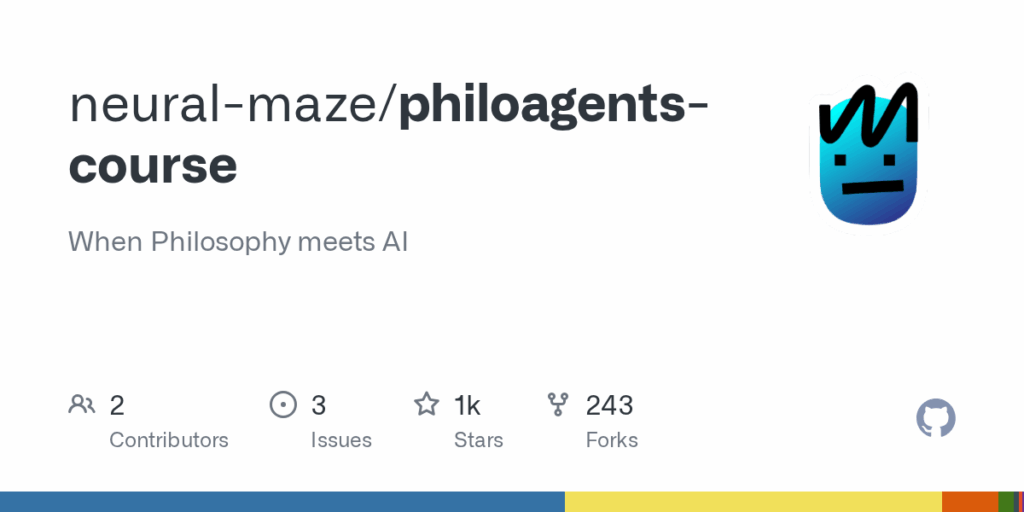philoagents course
Basic Information
An open-source, hands-on course and codebase that teaches how to build an AI-powered game simulation engine which impersonates historical philosophers. The repository provides lesson material, example code and a two-app project structure consisting of a Python backend (philoagents-api) that contains the agent simulation logic and a Node frontend (philoagents-ui) used to play the game. The course covers architecting and implementing production-ready retrieval-augmented generation (RAG) systems, agent design with LangGraph, LLM integrations, short- and long-term memory with MongoDB, RESTful API and WebSocket deployment, and LLMOps practices. Materials include six modules with written and video lessons, setup and usage instructions, and automated data ingestion from Wikipedia and the Stanford Encyclopedia of Philosophy to populate agent memories.








